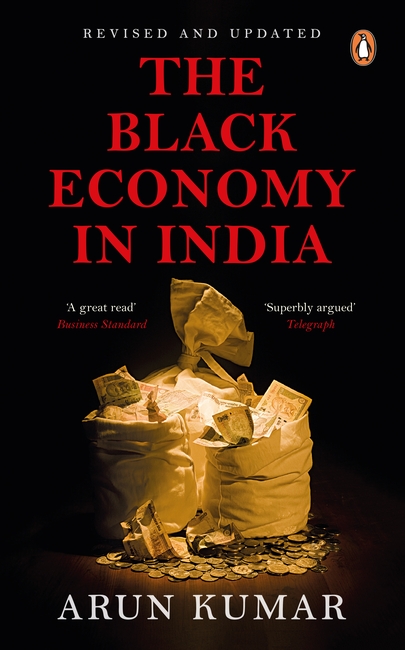
India’s white economy is inextricably linked with its black economy. Where in 1991 the black economy constituted about 35 per cent of the national economy, it had increased to 62 per cent by 2013. Both legal (industry, services, real estate, the share market) and illegal (havala, smuggling, narcotics) activities, as well as instances of corruption, contributed to this situation. But the cash, or ‘black money’, circulating in the country is merely around 3 per cent of the total domestic black economy. In this scenario, how effective has the central government’s move to demonetize 500- and 1000-rupee notes in November 2016 been?
In the only such book on the subject, written especially for the general reader, Arun Kumar critically examines the causes and consequences of black income generation and the possible ways to curb it. Backed by empirical data, his incisive analysis lays bare the pernicious effects of black income on the macroeconomy and the resultant inefficiency in society. It also focuses on the nexus of businessmen, politicians and the executive in perpetuating the black economy.
A groundbreaking book, The Black Economy in India shows how demonetization is not the way to end black economy, since what India must do is empower citizens and make leaders accountable.
Imprint: India Penguin
Published: Nov/2017
ISBN: 9780143028673
Length : 320 Pages
MRP : ₹399.00
Arun Kumar taught economics at the Centre for Economic Studies and Planning, Jawaharlal Nehru University, Delhi, till 2015. He has a master’s degree in physics from Delhi University and Princeton University, USA, and a doctorate in economics from JNU. A ground-breaking book, The Black Economy in India in India shows how demonetization is not the […]
